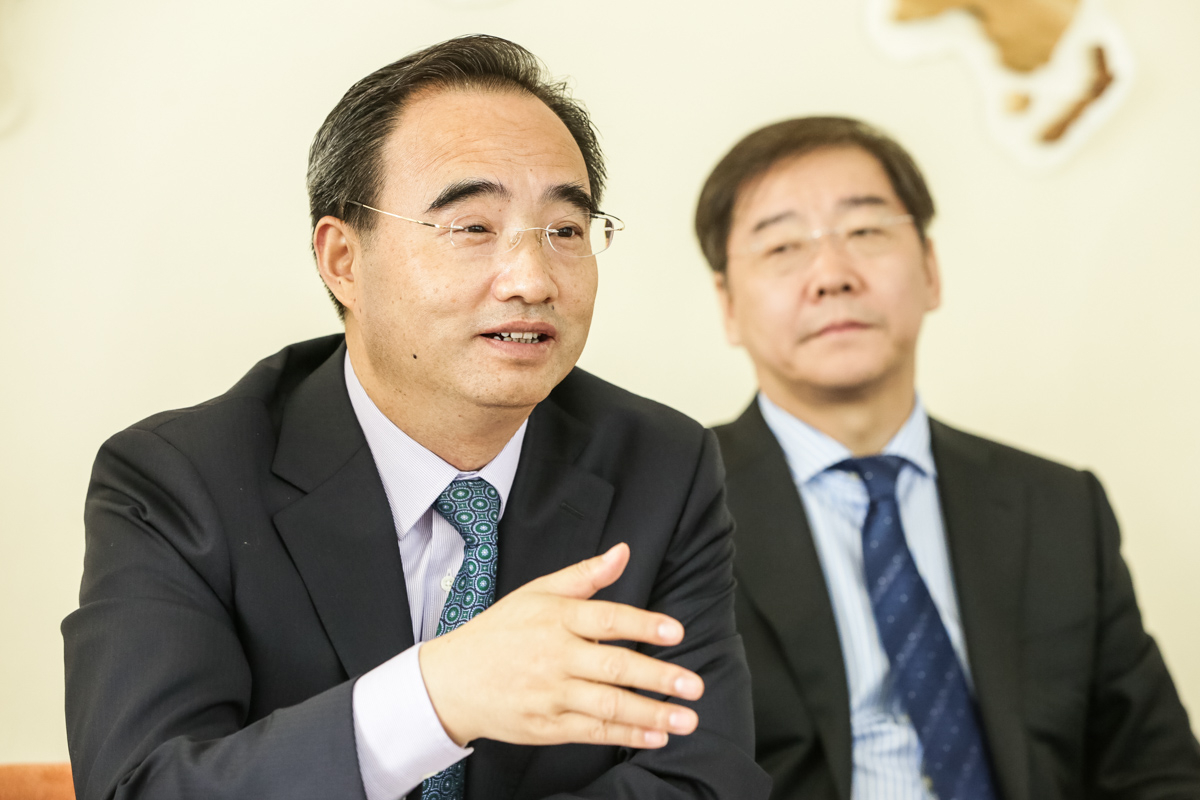SPbU to cement ties with Chinese universities
The delegation of the China University of Political Studies and Law has paid an official visit to SPbU, with a specific focus on academic and student exchange programmes and joint educational programmes.
The delegation was met by Marina Lavrikova, SPbU’s Vice-Rector for Academic Affairs and Methodological Support. “Today partnership with the Chinese universities is our overarching priority on a global scale, — said Marina Lavrikova. — Some years ago, SPbU served as a platform where Prime-Ministers of China and Russia signed an agreement on collaboration in education. Another factor contributing to China-Russia partnership in education is that SPbU is a member of the BRICS Network University”.
The China University of Political Science and Law seeks how to develop partnership in science and research with SPbU, said Rector of the China University of Political Science and Law Huang Jin. “In 1952, the Faculties of Law from the four leading China’s universities formed the University of Political Science and Law. We are working directly under the Ministry of Education and regarded as the China’s leading university in law, — said Mr Huang Jin. — Initially we exclusively focused on legal studies and history of law, but since the late 1970s we, continuing to preserve legal studies and law at the forefront of education and research, have been trying to expand our scope. We are proud to say that our graduates pursue a legal career at the top level: a fourth of 30,000 lawyers in Beijing are our graduates”. The China University of Political Science and Law is trying to expand its international connections, said Rector. With European and American universities a crucial factor in international collaboration some time ago, today, as the initiative “One Zone, One Road” gains momentum, the China University of Political Science and Law is trying to develop partner relationships with Asian universities, including Russian ones. The China University of Political Science and Law is regarded as a leading university of China to study Russian law, and it is eager to ensure cooperation not only in law, but in other fields, says Mr Huang Jin.
SPbU educates and prepares students in all the fields the Chinese colleagues do, and the school of law, as well as school of management, political sciences, and oriental studies, are globally ranked top, says Marina Lavrikova. “We rate most highly traditional forms of collaboration: students and academic exchange programmes. Moreover, we have opened a number of projects with a specific focus on China studies: one of the pioneering programmes in the field was the programme in law, and this year we are opening similar undergraduate progarmmes in economics and management, — said Marina Lavrikova. — In oriental studies, we offer a programme in Contemporary Chinese Studies.
The parties have agreed to revise the agreement on collaboration signed between the two universities in 2005.



